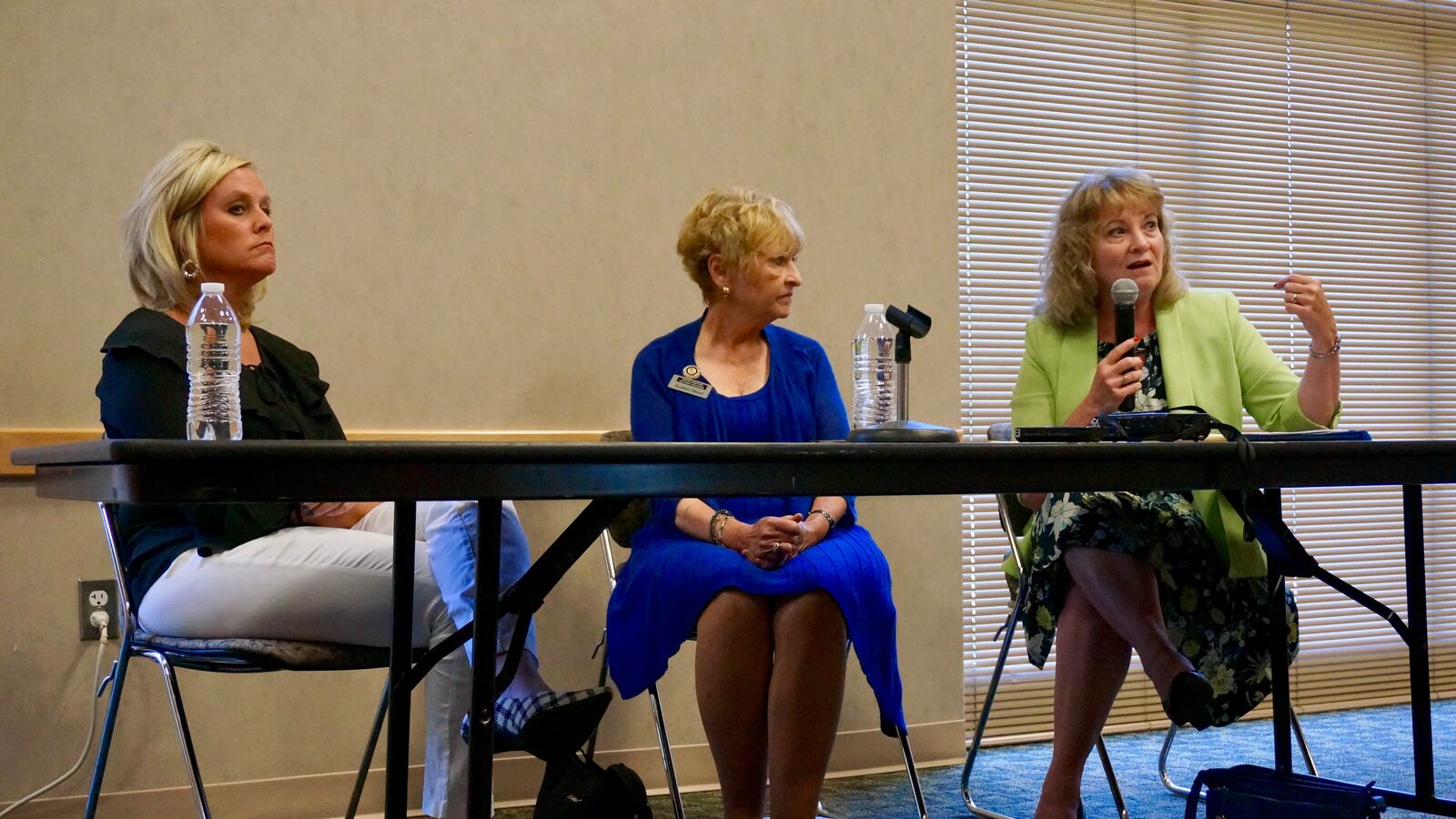In her race for state superintendent, Jennifer McCormick raked in donations from school choice advocates. But at a forum Saturday, she seemed at home in a room packed with critics of vouchers and charter schools.
At an event hosted by the Indiana Coalition for Public Education, which advocates for public schools, McCormick called for more accountability and transparency for charter schools and private schools that receive vouchers.
McCormick, who is a Republican, joined two former state superintendents. The panel featured Glenda Ritz, a Democrat who is beloved by many teachers and union supporters but lost her re-election bid to McCormick in 2016. The final panelist, Republican Suellen Reed, led the Indiana Department of Education for 16 years.
The three education leaders raised concerns about private school vouchers and charter schools, a theme that drew applause from the audience.
McCormick appears to accept that charter schools and voucher funding for private schools are here to stay in Indiana. In a school choice system, however, all schools that receive public funds should have the same scrutiny, she said.
“If we are going to go choice,” she said, “shouldn’t it be quality choice? Whether it’s a traditional public or a charter or a voucher — should that not be a quality choice?”
Instead of creating a completely free market, the state should make sure that schools are meeting baseline expectations, she said. As it stands, some schools are not meeting minimum expectations.
“It shouldn’t be a free for all,” McCormick said.
McCormick’s position drew a weary half smile from Ritz, who frequently butted heads with politicians who advocate for school choice. “Good luck,” she said.
“It is very frustrating to see what has happened with a lot of those dollars that has come through,” Ritz continued. “We know they are not being used appropriately.”
In some ways, the competition from school choice has made traditional public schools better, Reed said.
“The problem is, there’s only so much money go around” for schools, she said. “As the amount of money has diminished, for whatever purpose, it makes it harder to get things done that absolutely have to be done.”
There was wide support from the panelists for fighting both to get more school funding and to prevent schools from losing federal funding they rely on, such as the aid schools receive to help educate poor children.
“We will never have enough. I mean, that’s the bottom line, but we have got to continue to fight for what we can get,” McCormick said. “We are trying to scrape and save every penny and fight for what we can get.”


